Brandon Stanton's Blog, page 107
October 1, 2018
“It wasn’t sudden. He was born four months early. The organs...
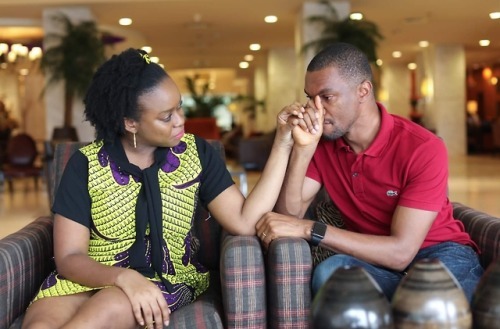
“It wasn’t sudden. He was born four months early. The organs didn’t have enough time to mature. He just wasn’t ready for life. But he held on for more than two years. He was such a happy child. He laughed so hard when you rocked him. We called him ‘Bibi,’ because his older brother couldn’t say ‘baby.’ Toward the end, he was learning to stand on his own. We honestly thought he was going to make it. But his immune system was just too weak from all the medication. And his lungs were too weak from all the machines. He couldn’t survive. I had a hard childhood growing up. This place makes you tough. Nigerians and cockroaches will be the last living things on this planet. I can remember being nine years old, and sitting down with my brothers to make a plan when we ran out of food. Our only idea was to drink a lot of water. So I’ve always had to be strong. When my brother died, I couldn’t mourn. I was the oldest in the family. I had to hold it together and make arrangements. But not this time. After Bibi, I decided that I don’t ever have to be strong again. That was my child. I can’t button this one up. Either I allow myself to be weak, or I’m never going to get through it.”
(Lagos, Nigeria)
“I had a lonely childhood. I didn’t have many friends. I...
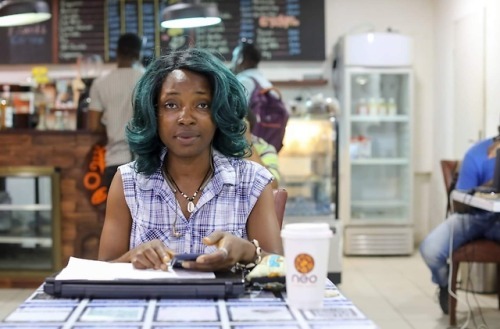
“I had a lonely childhood. I didn’t have many friends. I spent a lot of time writing depressing poetry in my room. But everything changed the first time I saw someone perform a spoken word poem. It was at a fellowship meeting. I never realized that poetry could impact an audience like that. After the meeting, the girl invited me to join her poetry club. There were seven members. They met every Thursday under a guava tree in the school courtyard. It was a place for me to just write, and to read what I’d written. It was a place where I felt accepted and got critical feedback. I got better at writing. I grew more confident. Eventually I performed in front of larger audiences, and my projects got more ambitious. Now I’m working on a book. It’s been my main focus for the last four years. It’s about a little girl who’s misunderstood. She’s an artist. She wants to be recognized and understood. But everyone around her thinks she’s a witch. When I began writing the book, the character was based on myself. But I’m so different than her now. I’m not depressed anymore. I’m closer to my family. I don’t feel so isolated. But I’m not sure she’s gotten there yet. I’m struggling to not impose my growth onto her journey. As a writer you’re supposed to detach yourself from your character. But when you’ve included so many elements of yourself, and you’ve evolved so much, it’s really hard to do.”
(Lagos, Nigeria)
September 30, 2018
“I’m a community leader here. I watch over about eighty...
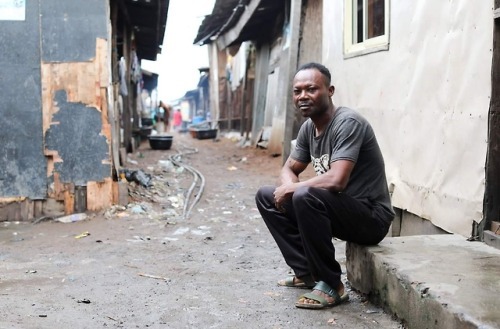
“I’m a community leader here. I watch over about eighty people. We meet every month, and I try to bring their concerns to the government. They also look to me for guidance on how to vote. Hardly any of them are educated. Most of us have nothing. I’m lucky because I work as a street cleaner, but my salary hasn’t been paid in three months. But if we try to feed ourselves by hawking articles on the side of the road, the government will put us in jail. We need jobs. We need clean water. We need good roads. The politicians promise these things before every election. They visit the neighborhood, and tell us this time it will be different. But after the election they disappear. I’ve been to the minister’s office so many times. Every time his receptionist tells me that he’s in a meeting. I sit there all day. The meeting never ends. But he’ll show up again when the election comes around, carrying eighty packages of noodles, and a polo shirt with his name on it.”
(Lagos, Nigeria)
September 29, 2018
“I attribute my success to getting to know God early in life....
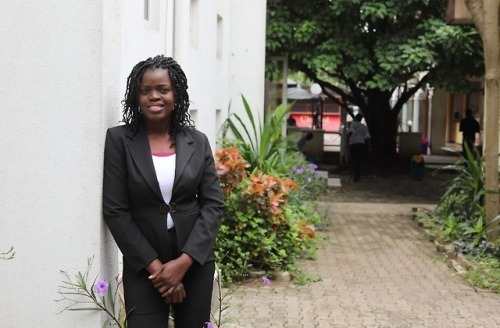
“I attribute my success to getting to know God early in life. Where I grew up, it was easy to go wayward. And it was risky to go wayward. Thankfully I studied the Bible enough to know the definition of sin. It taught me right from wrong. If I’d been out there trying to figure it out myself, I’d have taken too many wrong turns. I’d probably have gotten pregnant at a young age. I definitely wouldn’t be an architect right now. Maybe some people can do it without God. But not many people in my neighborhood were reading books about morality and ethics. We weren’t being taught the seven habits of highly effective people. But we did have the word of God. I relied on it. And it carried me through.”
(Lagos, Nigeria)
“I just drove by a man being beaten by police. He was a bus...
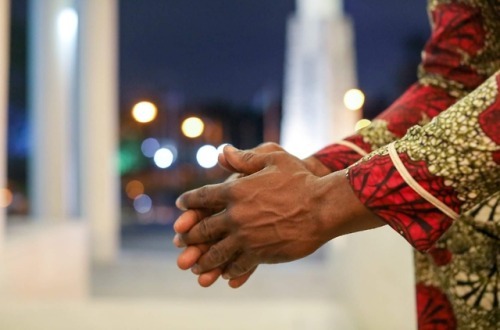
“I just drove by a man being beaten by police. He was a bus driver. He’d been pulled from his bus, pinned to the ground, and beaten with sticks in front of his passengers. It’s not uncommon. He probably refused to pay their bribe. I see it two or three times a month. Sometimes it’s fists. Sometimes it’s sticks. Sometimes it’s whips. You can try to take a photo but it’s dangerous. Because then they can turn on you. So you just keep driving. It makes me sick because I work as a driver, and I know that one day it might happen to me. I never drive through yellow lights. It’s too dangerous. Sometimes they’ll even force you into a violation. They’ll purposely direct you the wrong way down a ‘one way’ street. If that happens, you don’t argue. You don’t try to defend yourself. You will lose no matter what. You just start begging.”
(Lagos, Nigeria)
September 28, 2018
“It happened in May. I was driving my friend’s Mercedes to...
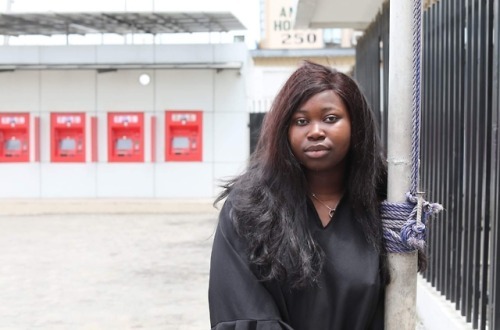
“It happened in May. I was driving my friend’s Mercedes to school because my car had broken down. And suddenly I got pulled over. I turned on the interior lights. I showed the policemen my ID. I called my friend on the phone and asked him to explain the situation. But they said: ‘Not enough, get out of the car.’ They started calling me a prostitute. I told them I’m an artist. Then they saw my laptop in the backseat, and they tried calling me an Internet scammer. They asked me to open my computer and type in the password. I told them it wasn’t possible. Then they asked for a huge bribe, and I told them it wasn’t possible. That’s when they cocked their guns at me. One of them got in the front seat. He pointed his gun at me and told me to drive to an ATM. I brought him to this exact spot, and he escorted me to the machine. I left the car running. I maxed out one of my cards, and told him that I have go back and get another one. Then I locked the door and started driving away. That’s when he started shooting at me! All of this was captured on surveillance cameras. I sped away. I was taking short cuts and back roads. The whole time I was thinking I’m about to get killed. When I got home, I found four dents in the car from where the bullets hit. Afterwards I contacted the police, and they said they wouldn’t even speak to me unless I deleted the story from social media. I said: ‘I’m not doing that. I’m a law student.’”
(Lagos, Nigeria)
“They’re called Yahoo Boys. The name comes from the old days...
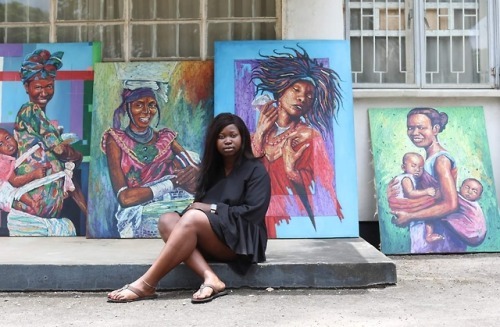
“They’re called Yahoo Boys. The name comes from the old days when they used Yahoo email accounts to scam people. I first started seeing them when I went to the University of Lagos. They form little gangs. They travel in convoys where all the cars are the same color. They’re always on their laptops. These days a lot of them are legitimized. They rent office space. They refer to their targets as ‘clients.’ They start charities. They put their fraud money into other businesses. Some of them have Instagram accounts with hundreds of thousands of followers. They post pictures of their cars and clothes. They never mention where they got their money, but everyone knows. A lot of them buy art from me. Since a lot of their scams are emotional fraud, they’ll even ask me for advice on things that women would say in a relationship. Or they’ll ask me to pick up their phone and pretend to be a secretary. I never participate. Recently I’ve even stopped selling them paintings. It’s cost me a lot. But I can’t take their money without feeling complicit.”
(Lagos, Nigeria)
September 27, 2018
“When I was the age of this boy, my father had a stroke. My...
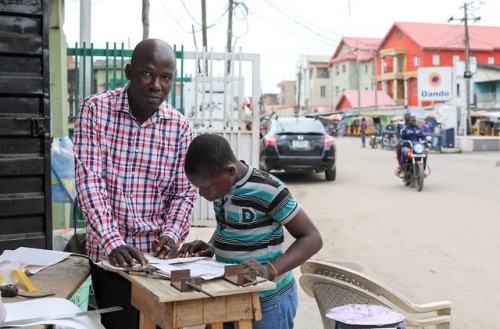
“When I was the age of this boy, my father had a stroke. My family used all our savings to take care of him. And after we’d spent everything, my father gave up the ghost. We were left in a desperate situation. There was no money left. There were six of us living in a single room. I was only in 5th grade, but I had to go to work. I carried oranges on my head and sold them in the street. Then one day I met the owner of a print shop. He was a friend of my brother. He fed me every afternoon, and he began to teach me his profession. He told me: ‘Never view yourself as having nothing.’ And he showed me that I could change my life with skills alone. Now I have my own shop. And anyone who has an interest, I will teach them. I’ve taught fourteen boys already. This boy has stopped going to school. But we can’t allow him to be idle. We must keep him busy because there’s criminality all around us. Every day we see drug dealers walk by. I point to them and I ask: ‘Do you want to be like them? Or do you want to be like me?’”
(Lagos, Nigeria)
“My mother won the visa lottery, so when I was young my family...

“My mother won the visa lottery, so when I was young my family relocated to Minnesota. I think I’m the only one of my siblings who always viewed Nigeria as home. I participated in Model UN. I studied international political science. I admired Nelson Mandela. So I always knew I’d go back to Africa one day. After graduation I interned with an NGO in Northern Nigeria. During that trip I witnessed a breached birth in a village. There was no C-Section available, so the baby died. I knew then that not only would I be coming home to Nigeria, but I’d be doing something in healthcare. I’ve been home for six years now. I’ve chosen to work on the country’s blood distribution problem. Every year tens of thousands of people die while waiting for blood. Meanwhile there are blood banks discarding unused inventory. My company LifeBank is trying to close that gap. Most blood banks in Lagos are participating in our program. Every morning we take an inventory. And when blood is urgently needed, we use bikes to deliver. It’s not easy. Imagine New York City without the infrastructure and no subway system. That’s Lagos. Yet LifeBank has delivered over 10,000 bags of blood within 55 minutes. Blood shortage is a global problem. And if we can do it in Lagos, we can do it anywhere. In December we’re expanding to two new cities. But I see us all over the world.”
(Lagos, Nigeria)
September 26, 2018
Shortly after arriving in Lagos, my guide showed me a story...
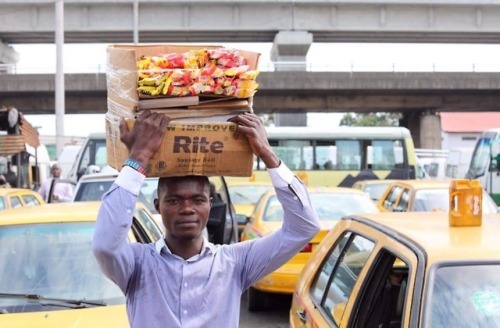
Shortly after arriving in Lagos, my guide showed me a story that was being passed around Nigerian social media. There was a woman who’d been stopped in traffic behind a crowded prison truck, and she witnessed a food vendor running alongside, shoving his food between the bars of the window, into the hands of the prisoners inside. By the time he was finished, he’d given away all his food. The man was himself in desperate circumstances. He was sleeping outdoors. But despite having hardly anything to give, he gave away all his merchandise. Amazingly, my guide Kola was able to locate the man. His name is Ibere Ugochukwu. And this is his story:
“A few years ago I worked as an apprentice in a cosmetics shop. I was supposed to receive a payment at the end of my term. But I was warned by the other employees that the owner would find a reason not to pay me. He’d always invent reasons to fire his boys right before their payment. So I made the decision to quit. But when I told him, he dragged me to the police. He told them lies about me. He told them I’d stolen so much money. And they tortured me. They tied my hands and legs and they hung me from the ceiling. They beat me. I went deaf from all the slaps. For ten days I was given no food. My fellow prisoners would share little bits of their meals when they were finished. But some days I saw nothing. Honestly I was about to die. And I started to pray to God. And on the tenth day, the guards decided that it would cause too much trouble to let me die. They told my employer: ‘After what we did to him, he must be innocent. Because he’d have confessed if he was guilty.’ They released me into the world like a madman. And I’ve carried the memory ever since. I promised myself that if I ever found someone in a similar situation, I would help. So when I learned that prisoners pass down this road, I chose to hawk in this location. I waited until I finally saw the truck, and I pushed all my food through the bars. My fellow vendors couldn’t believe it. They asked me who would pay me for the food. I told them: ‘I didn’t do it for any man. I did it because of what God did for me.’” (Lagos, Nigeria)
Brandon Stanton's Blog
- Brandon Stanton's profile
- 769 followers



